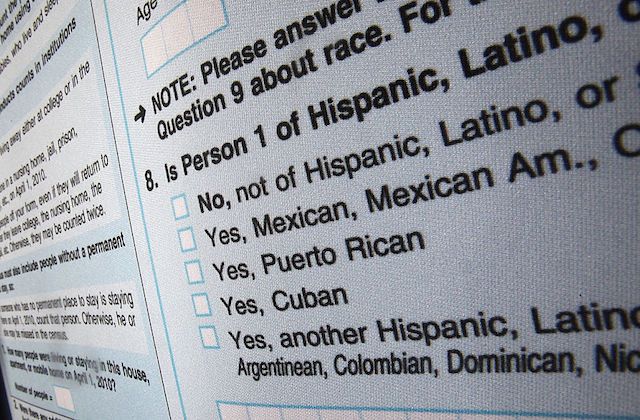In March 2018, the Department of Commerce announced that the 2020 Census would include a question about citizenship status. It was a move that prompted warnings from civil rights organizations and lawsuits from entire states, as advocates called out the administration’s “clear attempt to politicize the process by discouraging minority communities and immigrant communities from participating in the count,” as Kristen Clarke of the Lawyer’s Committee for Civil Rights Under Law put it.
Today (January 15), United States District Judge Jesse M. Furman ruled that the Department of Commerce (and the United States Census Bureau, which it operates) cannot include the question—“Is this person a citizen of the United States?”—on the upcoming count of U.S. residents.
Furman wrote that the government cannot use the question "without curing the legal defects” detailed in the 277-page decision, which concludes with the following statement:
rnt
Secretary [of Commerce, Louis] Ross’ decision to add a citizenship question to the 2020 Census—even if it did not violate the Constitution itself—was unlawful for a multitude of independent reasons and must be set aside. To conclude otherwise and let Secretary Ross’ decision stand would undermine the proposition—central to the rule of law—that ours is a “government of laws, and not of men.” And it would do so with respect to what Congress itself has described as “one of the most critical constitutional functions our federal government performs.”
As NPR notes, Furman expects the federal government to appeal his ruling—which settles two lawsuits brought by 18 states and several municipalities—to the U.S. Court of Appeals for the Second Circuit and the Supreme Court. There are five additional lawsuits working their way through courts across the country. The forms reportedly need to be finalized by June of this year.
The Washington Post notes that the Census has not included a question about citizenship since 1950, and that six former directors of the Census Bureau who served in both Democrat- and Republican-led administrations oppose adding it.
Dale Ho, director of the ACLU’s Voting Rights Project, which brought the lawsuits to court, called the ruling a victory. “This ruling is a forceful rebuke of the Trump administration’s attempt to weaponize the Census for an attack on immigrant communities,” Ho said in a statement. “The evidence at trial, including from the government’s own witness, exposed how adding a citizenship question would wreck the once-in-a-decade count of the nation’s population. The inevitable result would have been—and the administration’s clear intent was—to strip federal resources and political representation from those needing it most.”
Derrick Johnson, president of the NAACP, was even more direct about the ruling’s impact on people of color:
rnt
The ruling by Judge Jesse M. Furman is a step in the right direction to stopping xenophobic rhetoric and policy at all levels of government. The addition of a citizenship question to the 2020 Census only increases the likelihood of a substantial undercount of immigrant communities, particularly immigrants of color including those from the African Diaspora who are essential to determining U.S. elections, congressional seats and federal funding decisions for a decade. Any citizenship question compounds the already inadequate preparation for Census 2020 and further dilute[s] the votes of racial and ethnic minorities, and deprive[s] their communities of critical federal funds and undervalue their voices and interests in the political arena. We must continue to stay vigilant and not let this administration use yet another mechanism to devalue and stifle the voices of people of color.
